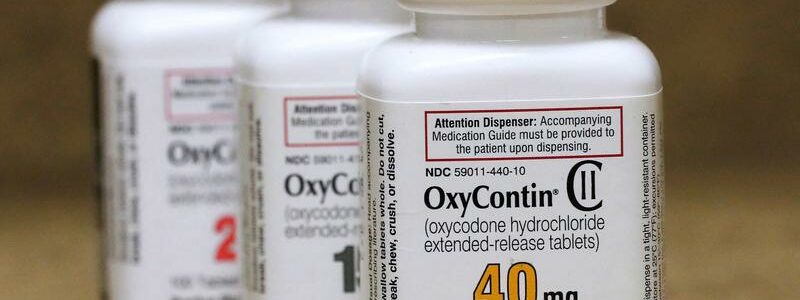
Purdue Pharma bankruptcy can proceed despite potential US Supreme Court appeal
NEW YORK (Reuters) – OxyContin maker Purdue Pharma may proceed with a bankruptcy settlement that protects its Sackler family owners from lawsuits, despite a potential U.S. Supreme Court appeal in the case, a U.S. court ruled on Tuesday.
The 2nd U.S. Circuit court of appeals approved Purdue’s bankruptcy plan in May, ruling that the company can shield its owners from opioid lawsuits in exchange for a $6 billion contribution to the company’s broader bankruptcy settlement.
The New York-based court ruled that U.S. bankruptcy law allows legal protections for non-bankrupt parties, like the Sacklers, in extraordinary circumstances.
Following the ruling, the U.S. Department of Justice’s (DOJ)bankruptcy watchdog asked the court to pause its approval of the bankruptcy plan to allow time for a potential appeal to the U.S. Supreme Court.
The DOJ argued that Purdue should not be allowed to move forward with its restructuring before the Supreme Court had a chance to weigh in on legal protections for non-bankrupt entities, an issue that has divided bankruptcy courts across the U.S.
The DOJ said it intended to file a Supreme Court petition by Aug. 28.
Purdue had argued that a delay was unwarranted and that there was only a slim chance that the Supreme Court would agree to hear the appeal.
The Connecticut-based company has sought to use bankruptcy to resolve thousands of lawsuits, many filed by state and local governments, alleging that OxyContin helped kickstart an opioid epidemic that caused more than 500,000 U.S. overdose deaths over two decades.
The DOJ’s proposed delay would stop Purdue from sending money to U.S. states and individual victims of the opioid crisis, and delay its transformation into a non-profit focused on addressing the harms of the opioid crisis, Purdue wrote in court papers.
The DOJ’s bankruptcy watchdog did not immediately respond to a request for comment on the decision. It had previously argued that a Supreme Court appeal might be impossible without delaying Purdue’s restructuring.
The lawsuits against Purdue and the Sacklers allege that the drugmaker misled doctors about how addictive OxyContin was, causing many patients to become hooked on opioids.
Similar lawsuits related to the U.S. opioid crisis have resulted in more than $50 billion in settlements with manufacturers, drug distributors and pharmacy chains.
Source: Read Full Article